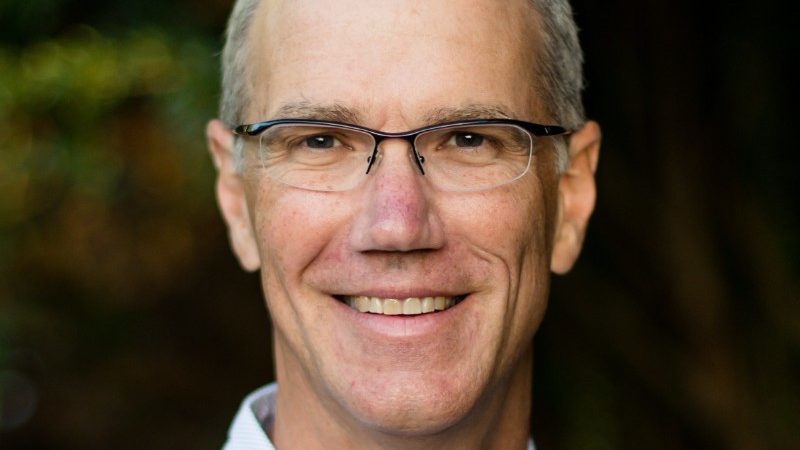The innovator-in-residence at Marquette University says many organizations that want to be innovative are missing some key structural traits that would help them accomplish that goal.
Chuck Swoboda says the six traits that make up the “CIRCLE of innovation” — candor, initiative, resolve, courage, leadership and engagement — can be implemented in all industries.
Swoboda, author of “The Innovator’s Spirit,” president of Cape Point Advisors, and retired chairman and CEO of Cree, Inc., broke down the CIRCLE acronym in a virtual Milwaukee Tech Hub Coalition event yesterday.
“What I found, not only in my own career but in some of the years working with other companies, is that these traits and the way I describe them are actually lacking in most organizations that are striving to innovate,” he said.
Swoboda said candor starts with being honest about the facts by prioritizing constructiveness over collegiality and embracing the brutal truth, for example, calling people out when they have a lousy idea.
Initiative is about experimenting or trial and error, which he said is critical to innovation.
“People become so focused on trying to be right, that they actually miss the opportunities for success,” he said. “If you’re going to innovate, don’t wait for perfection.”
The third trait is resolve — he suggests creating a situation where there is no choice but to innovate, including scrapping back-up or contingency plans. This will force people to do things that they otherwise think is not possible, he explained.
“You have to literally fail so you can overcome your fear and realize that you survived,” Swoboda said of courage, the fourth trait. “When it comes to innovation, what you’ve got to realize is the biggest risk is actually not doing anything at all. ”
Leadership doesn’t magically happen, he added. Swoboda said removing boxes or boundaries — that only exist by choice — is how a business pursues seemingly impossible goals or business opportunities.
The sixth trait is engagement. Swoboda recommended writing down the biggest challenge to achieving a goal, putting it somewhere where it serves as a daily reminder and thinking about the solution.
“When things get personal, that is actually when things get done,” he said.
An executive panel following Swoboda’s remarks said health care, banking and retail are three industry examples that have harnessed “the innovator’s spirit” to overcome pandemic-related challenges through telehealth, financial service technology and curbside pickup, respectively.
Milwaukee-based Advocate Aurora is seeing both the pandemic and business model challenges due to unaffordable health care as risks that bring opportunities, according to the health system’s chief strategy officer.
Scott Powder said at the beginning of the year, Advocate Aurora had a goal to reach 25,000 virtual visits — less than 1 percent of total visits. As of yesterday, Aurora had completed 785,000 virtual visits this year.
“That really boils down to, you have this no boundary, no constraint, no back-up plan … and the other thing is we didn’t wait for perfection,” he said, adding that it was a challenge for both physicians and patients.
“We were lucky in a way, silver lining, that we had this crisis to force this change,” Powder said. “It has a silver lining around forcing innovation.”
Cream Pepito, vice president of engineering for planning, sales and services at Northwestern Mutual, said “the innovator’s spirit” is the core of the 160-year-old bank’s long-term strategy to forecast the future and thrive in the digital age.
“Innovation has also become a part of the way we work,” Pepito said. “This is reflected in the new experiences and solutions we’re building for our clients and financial advisors.”
She also cited the pandemic as bringing new challenges to the business. Northwestern Mutual didn’t have a back-up plan for COVID-19. It had to quickly deliver policies and digital solutions in order to serve its customers.
Kohl’s Chief Technology Officer Paul Gaffney agreed with Swoboda’s assessment that a company needs to possess a willingness to be wrong and cannot always wait for a perfect plan. For Kohl’s, the pandemic brought an immediate need for curbside pickup.
“We had a really well thought out plan of what we were convinced we had to build before we could really roll out curbside pickup,” he said. But customers didn’t want to wait up to 18 months for the 16 features the company thought it had to have. “The customer just wants to pick some stuff up.”
Swoboda disclosed that his CIRCLE of innovation comes from his world of disruptive innovation and significant changes, however, the mindset can apply to all industries and businesses and can be executed incrementally.
“I think in some industries, you’re probably better off pursuing an incremental approach that’s probably better for your company and the resources you have. For some, your industry might be at a crossroads where you have no choice. I think it’s okay to apply that approach to the context and the situation,” he said. “Depending on your company and your industry I think it starts with an honest assessment of where you’re at and where you need to be at some point in the future.”
-By Stephanie Hoff
WisBusiness.com



